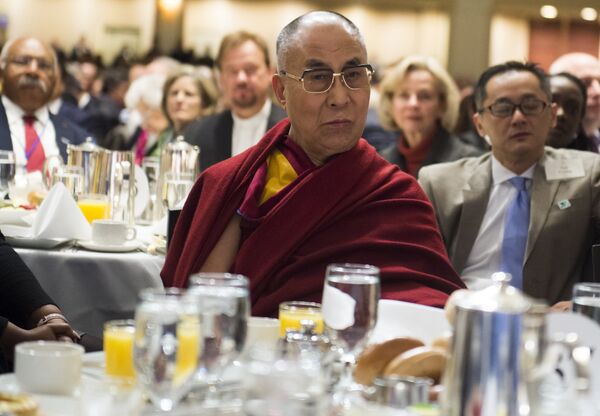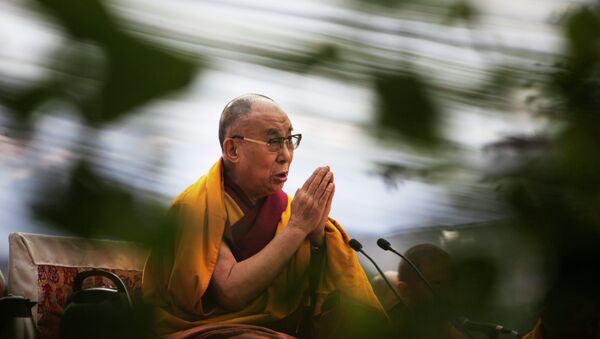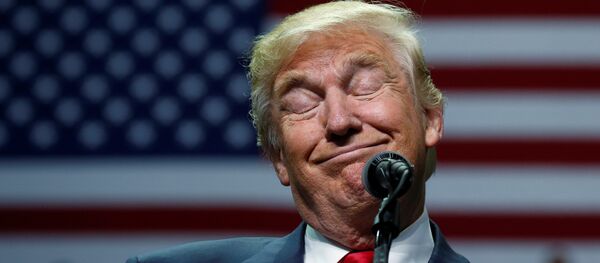Last month, the exiled Tibetan spiritual leader told reporters that he would like to visit the US to meet with Trump after he becomes president. As expected, the Dalai Lama's comments raised concerns in Beijing, where he is considered a dangerous separatist and possibly a CIA agent. Subsequently, commentators have warned that a meeting between Trump and the Dalai Lama may sour ties between Washington and Beijing.
Speaking to Radio Sputnik, Robert Barnett, director of Modern Tibetan Studies at Colombia University, explained why in and of itself, such a meeting, if it even takes place, probably won't affect US-China ties.
First of all, Barnett noted, there's actually no sign yet that any meeting has been scheduled. "This was just a statement by the Dalai Lama; he doesn't speak very good English. I think he meant that he would like to meet with Trump. [But there is] no sign that there has been any discussion of this with the Trump people."
"The reality," according to Barnett, "is that China has never done anything to America after any of the previous meetings between the Dalai Lama and a US president except talk. It's really interesting: China's been very strong on…expressions of anger when those meetings have happened in the past, but nothing has ever happened in practice."

"It did make some pushes against Oslo when Norway was accused of being involved in [granting] the Nobel Peace Prize [to] dissident Liu Xiaobo [in 2010]; they got a little bit of pushback on trade, and they got isolated for several years diplomatically. But actually little has happened to other countries; their trade usually remains just the same with China as it has been before, according to figures that I've been able to study. So most of this is rhetorical."
Ultimately, the academic suggested that "the big issue is: is it true, as China claims, that the Dalai Lama is still a separatist? He certainly supported independence for Tibet for about 20 years, until about 1974-1975 or maybe 1980, but he's been very firm in saying that he wants Tibet to be part of China [for] the last 20-25 years more or less. So the problem is that China refuses to accept his insistence that he's willing to come back to China and recognize Tibet as part of China."



